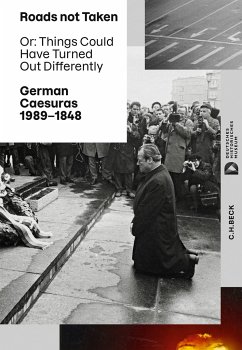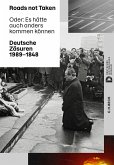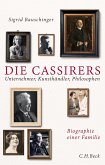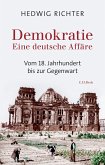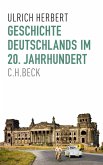"It could have turned out differently" - from this perspective, the volume looks at fourteen caesuras in German history between 1848 and 1989. Here the real and crucial historical events are considered against the backdrop of other historical developments that were always possible - developments inherently present in decisive, often dramatic turning points. In this way new light is shed on what is already known, the essential openness of history made evident.
What would have happened if the East German security services had violently turned on the demonstrators in 1989? If the USA had dropped atomic bombs on Germany in 1945? How would Germany have turned out if the effort to establish a constitutional monarchy had succeeded in 1848? This book accompanies the exhibition "Roads not Taken" in the Deutsches Historisches Museum, whose titel has a programmatic dimension: following a concept of the historian Dan Diner, he and the other authors focus on possible historical alternatives. What unexpected coincidences might have altered the real historical events? What role did the personalities involved play in their unfolding? Themes such as Germany's Ostpolitik, the Berlin Wall, the Cold War, the Nazi rise to power, revolution and democratization in Germany are newly evaluated in this way.
Hinweis: Dieser Artikel kann nur an eine deutsche Lieferadresse ausgeliefert werden.
What would have happened if the East German security services had violently turned on the demonstrators in 1989? If the USA had dropped atomic bombs on Germany in 1945? How would Germany have turned out if the effort to establish a constitutional monarchy had succeeded in 1848? This book accompanies the exhibition "Roads not Taken" in the Deutsches Historisches Museum, whose titel has a programmatic dimension: following a concept of the historian Dan Diner, he and the other authors focus on possible historical alternatives. What unexpected coincidences might have altered the real historical events? What role did the personalities involved play in their unfolding? Themes such as Germany's Ostpolitik, the Berlin Wall, the Cold War, the Nazi rise to power, revolution and democratization in Germany are newly evaluated in this way.
Hinweis: Dieser Artikel kann nur an eine deutsche Lieferadresse ausgeliefert werden.

